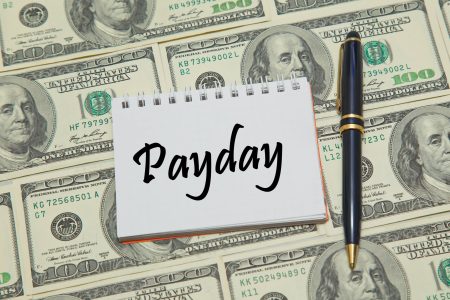We all want to save money but sometimes, it can be hard to know where to start. In this video, we’re sharing some simple and effective ways that you can implement to start saving more money each month. From the importance of paying yourself first, to creating an emergency savings fund, we’ll cover everything you need to know to get started on your savings journey. Saving money is an essential aspect of financial planning and can help you achieve your long-term financial goals. Here are some additional tips to help you save more money each month:
- Create a budget: This can help you track your expenses and identify areas where you can cut back on unnecessary spending.
- Set realistic goals: Determine how much you want to save each month and set a realistic goal. This can help you stay motivated and focused on your savings journey.
- Look for ways to save on recurring expenses: Consider switching to a more affordable phone plan or cable package, or shop around for better insurance rates.
Remember, saving money is a gradual process, and it’s important to celebrate small victories along the way. By implementing these tips, you’ll be well on your way to achieving your financial goals.
This video provides more tips on how to save more money each month. It emphasizes paying yourself first and creating an emergency savings fund.
Watch the video here:
Video Transcript:
Hi, my name is Blake Workman I’m one of the MoneyNav coaches here. One thing, I want to talk to you today about is how to save money each month. When we talk about we all want to save money, we all want to do that after we get our credit card statements and say I need to pull back, I need to do that but a lot of times, we don’t do anything but what I’m going to talk to you today in a couple of minutes is just ways that we can implement for you to save money each month and what I like to say when you’re thinking about saving is act small, think big.
We don’t have to do these giant Steps. We want to do them in little steps over time that make a big difference, so the first thing I always tell people is the first step in saving money is to pay yourself first. If you’re paid every Friday immediately when that paycheck hits go ahead and put 50 bucks over into your savings account. Automated as much as possible, the other thing with that strategy is to have your checking account and then open another savings account do not attach said savings account to your debit card or anything that you have access to use it as kind of just a savings account that’s a set it and forget it so each Friday that you get paid to go ahead and take 50 bucks and automatically push it into that savings account so each time you get paid to put that 50 bucks or 20 bucks whatever you can afford put that over into that savings. Let that go for a couple of months and then if you’re comfortable with that increase, that automatic saving then automate that. Don’t do it manually, on every Friday, “Oh I’m gonna go in and do it” because then you’re going to have some Fridays when you have expenses come up that you don’t want to do it so just automate it so each time you’re paid that’s automatically going into your savings and that’ll help you create an emergency savings fund for you so if the car breaks down and those things you can use that savings if you want to or you’re just starting to save money and overtime of even 20 bucks whatever you can afford each time you pay that savings is going to grow and gonna make you feel very good over the months of seeing that account balance grow so that’s the first thing I always tell people is automate your saving and pay yourself first as soon as you’re paid.
The next thing, everybody’s heard is budget your money’s going somewhere someplace and if you don’t know where it’s going you have some spillage in your accounts so maybe the first step in budgeting is rather than looking at the whole big picture maybe let’s start with your subscriptions who are you sharing your Hulu subscriptions with your ESPN’s. Those kinds of things look at some of those things that you can that your subscriptions are. See if you can share with somebody and save some money there. Another thing that I like to do for budgeting takes a look at your paycheck and then it’s called the envelope strategy and what that is you take your whole paycheck and you chunk it down into each category that you want it to be in so, for example, you have an envelope that’s for restaurant eating out, one is for car and gas, one’s for your insurance. You’re putting the money into each of those envelopes and that’s the money that you have for that class and if you have some leftover at the end of the month that’s great and then you just keep saving into that so that’s a great way to kind of track your spending and put them into envelopes and categorize them.
The next thing that I will do as well is it’s so easy for us to use our debit cards and our credit cards, right? You don’t see that cash transaction it’s just “Oh it’s on my credit card, I’ll pay it off over time” just like why casinos don’t give you actual money. You get those chips they like to take that money side off of the table for you so in your mind you’re not thinking you’re spending money on these debit cards and credit cards. What I like to do is then just go ahead when you get paid pull out cash that you want to spend, how much do you want to spend? Do you want to spend $500 until your next paycheck? Well take out that $500 and use only cash. I promise you you’re going to feel it a lot more when you go to that grocery store or entertainment things and you’re pulling cash out of your wallet as opposed to just swiping your debit card and seeing where you end at the end of the week so that’s a great way to just really make sure you’re feeling the money and everything that you’re spending on is having that cash in your pocket and giving it to them.
Another easy way to save some money each week, it’s not necessarily budgeting or anything it’s just picking a day of the week and don’t spend any money. Everybody in your family just picked Tuesdays, we don’t spend money on anything unless it’s necessary like gas or something like that but there’s no spending on that day, and if that works great. Then maybe in five months down the road, you do it two days, a week, Tuesday and Wednesday we’re not going to spend any money. I’m going to bring my lunch to work. I’m going to do those kinds of things, we’re gonna go walk in the park rather than go spend money at a restaurant. Having those no-cash spending days will help you alleviate some spending just because you know not to spend money on those days.
The last one that I like to say is save money if you have a 401K with your company. Go ahead and just increase your contributions by one percent, just do one percent. You’re not going to notice that out of your paycheck but it is increasing your savings so you’re doing it and again like the first one I said that’s an automated thing so each time you’re paid you’re automatically throwing another one percent into your 401k. I know looking at a budget is not something that everybody likes to do but it’s extremely important. Make sure you always pay yourself first, throw some money into savings, have maybe just spend cash only so then you know your allocated amount so you don’t overspend once that cash is out that you withdrew what you want to spend then you can’t spend any more until you’re paid again so those kind of things are things that will help you or that no day of spending. Remember start small and think big, don’t take off big chunks. I’m going to save $500 a month, do it in small steps and you can always increase your savings but what you’re going to do with these small steps is over time your savings is going to grow and that’s going to make you feel good and then that’s going to make you want to increase your savings so those are the financial tips that I’ll give you on how to save money each month.
Read the full article here








